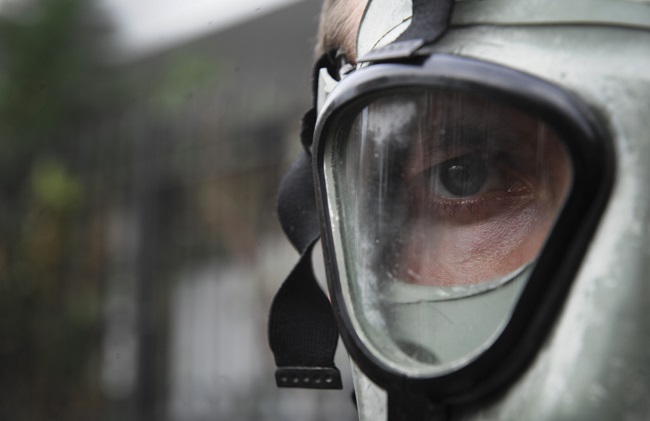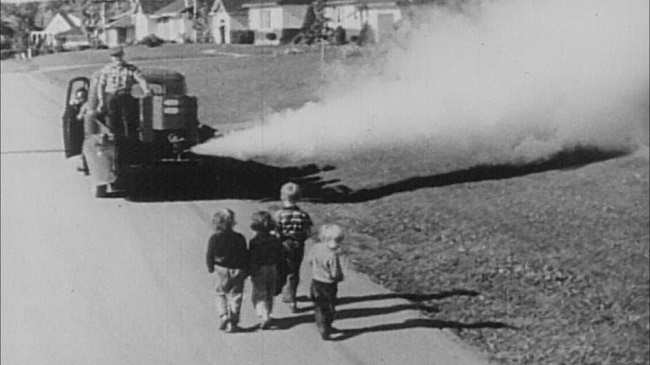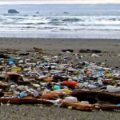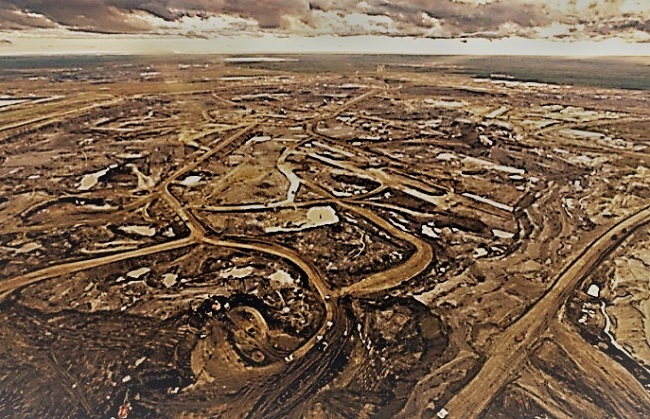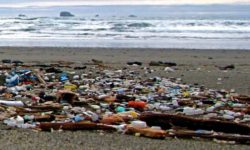“Have we fallen into a mesmerized state that makes us accept as inevitable that which is inferior or detrimental, as though having the will or vision to demand that which is good? Such thinking, in the words of the ecologist Paul Shepard, ‘idealizes life only with its head out of water, inches above the limits of toleration of the corruption of its own environment…Why should we tolerate a diet of weak poisons, a home in insipid surroundings, a circle of acquaintances who are not quite our enemies, the noise of motors with just enough relief to prevent insanity? Who would want to live in a world which is just not quite fatal’.” – Silent Spring pg. 12.
Who indeed? And yet, this is exactly the situation we find ourselves in. We tolerate all manner of toxic insults and so long as they do not kill us immediately; so long as they are not quite fatal, we accept them as a necessary component of modern life.
Some fifty years ago, Rachel Carson warned that our love affair with synthetic chemistry risked poisoning entire ecosystems. She was speaking specifically about the widespread use and rapid growth in environmental chemicals, pesticides in particular, industrial chemicals as well. Little did she know, that these represented the mere tip in the chemical iceberg that was to emerge in subsequent decades. In 1962, when Silent Spring was published, the production of synthetic pesticides stood at a mere 637 million pounds per year. Though a staggering a five-fold increase in just 13 years, 637 million pounds represents just a fraction of today’s production and usage. As of 2009, over one billion pounds per year of pesticides are used annually in the US alone; 5.6 billion pounds worldwide. These are chemicals that do not degrade, that effectively live forever in the soil, water, air, and in every organism from the smallest bacteria to the largest mammal. This, of course, is in addition to the more than 2500 chemicals used on foodstuffs as preservatives, colorants, fillers and the like and the 270 million pounds of pharmaceutical residues dumped into the waterways annually. Mind you, we willfully and purposefully consume pharmaceutical, foodstuff, and much of the agricultural chemicals. Indeed, we view these chemicals, not as the poisons that they are, but as testaments to modern science.
In 1962, Rachel Carson foretold the damage that these chemicals would do, as did many others before and after her death. She understood the mechanisms in a way that many modern scientists have failed or refused to grasp. These chemicals, she wrote:
“…have immense power not merely to poison but to enter the most vital processes of the body and change them in sinister and often deadly ways… They destroy the enzymes whose function is to protect the body from harm, they block the oxidation processes from which the body receives its energy, they prevent the normal functioning of various organs, and they may initiate in certain cells the slow and irreversible change that leads to malignancy.” -Rachel Carson, Silent Spring.
The astute reader will recognize that Carson was speaking of mitochondrial damage. In short, these chemicals damage our mitochondria, our life source if you will, and in doing so, the small, daily exposures to these chemicals kill us very slowly. Absent a large and direct exposure, these chemicals are almost fatal, but not quite, and not immediately. And we have accepted this. We have accepted that damage to the environment and the gradual decline in health are somehow simultaneously unrelated but also a necessary consequence of modern life.
So skewed has our perspective on health become, that in many ways, our only reference point to health is the absence of death, or more specifically, the absence of a quick death. We accept the chronic illnesses that much of population suffers from as just the cost of living, as if living sick is all that we can hope for. We view the billions of pounds of synthetic chemicals that we are exposed to annually, not as a health risk, but as triumph of man over nature. Sure we pick a few chemicals here and there to protest against, but we largely ignore the other 60 thousand chemicals used indiscriminately across every industry, including medicine. Indeed, we view the long-term use of multiple pharmaceuticals as a benefit of medical modernity, never questioning why so many of us should need so many medications in the first place. Even when those medications exert subtle and not so subtle decrements in our day to day functioning, even when those medications make us ill and necessitate the need for additional medications to temper those induced illnesses, we continue on, mesmerized by the wonders of modern chemistry, convincing ourselves that we are alive and that is all that matters. It never occurs to us that health is not simply the opposite of death or that health needs few, if any, regular medications.
Such is the predicament of modern man, we live in a chemical world where so long our exposures are ‘not quite fatal’, we accept them and move along.
We Need Your Help
More people than ever are reading Hormones Matter, a testament to the need for independent voices in health and medicine. We are not funded and accept limited advertising. Unlike many health sites, we don’t force you to purchase a subscription. We believe health information should be open to all. If you read Hormones Matter, like it, please help support it. Contribute now.
